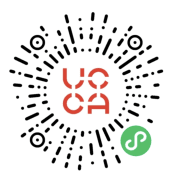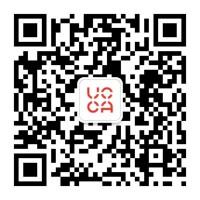UCCA Beijing Open Today, 10:00-19:00 (Final entry: 18:30)
UCCA Dune Open Today, 9:30-18:00 (Final entry: 17:30)
UCCA Clay Open Today, 9:00-18:00 (Final entry: 17:30)
UCCA Beijing“Pipilotti Rist: Your Palm is My Universe” Exhibition Parallel Conversations
“Pipilotti Rist: Your Palm is My Universe” Exhibition Parallel Conversations
She, Universe: Women’s Position in Literature, Sociology and Film Studies
2025.8.30 - 2025.9.20
Introduction
UCCA Center for Contemporary Art is currently presenting “Pipilotti Rist: Your Palm Is My Universe,” a sensually immersive solo exhibition by the renowned Swiss artist. Known for her pioneering visual language, Rist transforms representations of the female body into richly layered, multisensory immersive environments. Her work challenges conventional modes of perception and offers a unique lens through which to reexamine the relationship between self and world.
Inspired by Rist’s practice , UCCA presents a parallel series of conversations titled “She, Universe: Women’s Position in Literature, Sociology and Film Studies.” Expanding the exhibition’s reach into broader social sciences and humanities contexts, this program conversation series will invite speakers and audiences to reflect on how women’s lived experiences are expressed,shaped, and empowered through literature, social structures, and cinematic language. Through the convergence of these three fields, the series aims to deepen our understanding of women’s diverse roles and creative agency within cultural and social structures— collectively charting a more expansive “She, Universe.” The series is curated and hosted by UCCA Public Practice curators Wang Youyou and Wu Yiyao.
Session One
In Her Nature: A New Generation’s Brilliance in Women’s Writing
Speaker: Zhang Li (Professor at the School of Chinese Language and Literature, Beijing Normal University)
Date & Time: 2025.8.30 (Sat) 14:00-15:30
Location: UCCA Auditorium
As the opening event of the series, “In Her Nature: A New Generation’s Brilliance in Women’s Writing” will feature Professor Zhang Li from the School of Chinese Language and Literature at Beijing Normal University. The talk will focus on the contemporary expressions and practices of “new women’s writing.” These writers do more than chronicle our daily lives and our relationships with lovers, families, and friends—they also cast their gaze outward, exploring our connections with nature, the world, and the universe. Today’s new women writers inspire us to see that a women’s realms can unfold with freedom and breadth: it may be the bedroom, kitchen, or living room, but also gyms, studios, and cafés—or even the starry sky, the desert, and the high plateau.
As a leading scholarof modern and contemporary Chinese women’s literature and gender consciousness, Professor Zhang has long examined what constitutes genuine women’s writing and how such literary practices can take shape within today’s cultural context. Her team launched the Torchbearers: A Selection of Recommended Women’s Literature, a recommendation platform dedicated to discovering and promoting outstanding works by women authors. The list emphasizes contemporaneity, literary merit, and social value, with particular focus on women’s lived experiences and spiritual explorations in contemporary society.
In this lecture, Dr. Zhang will introduce the audience to a range of contemporary female authors and their works featured on the recommendation list—spotlighting the wide terrains they inhabit, the journeys they travel, and the visions they bring—and together explore how the world and nature shines forth through their diverse, but all very uniquely “She,” perspectives.
Session Two
Beyond the Body Proper: Gender/Sexuality in Public
Speaker: Huang Yingying (Professor at the Department of Social Sciences, Director of the Institute for Research on Sexuality and Gender, Renmin University of China)
Date & Time: 2025.9.6 (Sat) 14:00–15:30
Location: UCCA Auditorium
The second installment of “She, Universe” features Professor Huang Yingying of the Department of Social Sciences and Director of the Institute for Research on Sexuality and Gender, Renmin University of China. She will present a talk titled “Gender/Sexuality in Public.” Drawing on her extensive sociological fieldwork and social observation, Professor Huang will examine and discuss the particularities of female embodiment in the Chinese context, tracing both its continuities and transformations over time. Starting from everyday practices and public discourse, she explores the complex entanglements of gendered power and body politics, and reflect how transgressing conceptual, social, and political boundaries can expand the discursive and experiential space for women’s bodily rights and self-expression. The event will be moderated by Wang Youyou, Curator of Public Practice at UCCA.
In this lecture, I seek to weave together my recent research and dialogues through three key terms: women/femininity, the body, and publicity. The theme is broad, yet the reflections and anticipated exchanges grounded in lived experiences and rooted in contemporary Chinese society.
In previous writings, I have investigated specific bodily experiences while consistently engaging with issues affecting women’s bodies and other gendered groups. Whether addressing sex workers, people living with HIV, breast cancer patients, transgender communities, or white-collar women, university students, and elderly women, the central concerns of center/periphery, normal/abnormal, power/rights, social norms and lived logics remain both pervasive and overflowing. In recent years, discussions of women/femininity and the body have gained unprecedented “public” visibility, amplified through online attention to gender-related incidents.
My preference for using the slash (/) traces back to nearly two decades of collaboration and exchange with Taiwanese scholars, as well as classic sociological discussions of “strangers” and “outsiders.” Within public discourse, I hope the slash disrupts sloganized, fixed, and binary ways of imagining the body, while opening space for everyday life, nuanced reflection, critical engagement, and constructive dialogue.
What insights, then, might emerge when a slash is between “women” and “femininity”? Today, do we still have the space and the capacity to engage publicly with intimate issues? How do personal experiences, individual cases, and social structures interrelate? Who constitutes “we”? How should we understand “the present”? And how might “publicness” be imagined and practiced? In the field of gender, questions far outnumber answers, and responses are neither simple nor necessarily optimistic— but they call for a willingness to test them with the body itself.
——Huang Yingying
Session Three
The Body in Revolt: Tracing Female Liberation in European Cinema
Speaker: Jiao Rui (PhD in Film Studies; Lecturer, School of Liberal Arts, Renmin University of China)
Date & Time: 2025.9.20 (Sat) 14:00–15:30
Location: UCCA Auditorium
The third lecture of this series will be delivered by film scholar Dr. Jiao Rui, who will examine landmark women directors and works in European film history. The lecture focuses on how these filmmakers employed cinematic aesthetics and narrative strategies to advance a self-liberation of the body—that is, the pursuit of women’s bodily autonomy, the right to express desire, and visibility in society.
When did our bodies begin to possess, then lose, and later reclaim self-awareness? Today, memories of the body are continually expressed in public discourse, while cinema enables encounters across time and space through images. From its very beginnings, film placed the female body at the center the gaze. Yet this art form, long shaped by the “male gaze,” has also traced women’s escape from objecthood, becoming a vehicle of self-liberation. From pioneers such as Alice Guy and Germaine Dulac, to avant-garde innovators like Agnès Varda and Chantal Akerman, and to today’s growing wave of women filmmakers engaging with gendered issues, cinema has consistently illuminated women’s lives beyond economic, sociological, or demographic definitions. It reveals how women encounter the world: to sing or not to sing, to give birth or not, to laugh or remain silent, to forgive or to refuse.
On screen, liberated bodies summon liberating gazes. These gazes, in turn, invite us to encounter more emancipated women—not through one-sided looking, but through reciprocal visions across images, where the flow of life is shared.
About the Speakers
Zhang Li (Professor at the School of Chinese Language and Literature, Beijing Normal University)
Zhang Li is a professor and doctoral advisor at the School of Chinese Language and Literature, Beijing Normal University. She was named one of the “Top Ten Most Beloved Graduate Instructors” in the university’s fifth annual selection. Zhang is the founder and curator of the “Torchbearers: Women’s Literature Booklist” (Chiwei Huozhe), an influential annual list celebrating outstanding women’s writing in China.
Her major publications include The Emergence of Modern Chinese Women’s Writing (1898–1925), Landscapes of Fiction, and Torchbearers. She has also served as editor-in-chief of several important anthologies, including Beijing in a Century of Literature, Birds in Flight and the Underground: Twenty Short Stories of 2024, The Infinite Beyond: Twenty Contemporary Essays of 2024, A Calm Sea: Selected Chinese Women’s Fiction 2024, and With Feeling: Selected Chinese Women’s Essays 2024.
Zhang is a recipient of the Eighth Lu Xun Literary Prize for Literary Theory and Criticism and the Award for Outstanding Achievements in Chinese Women’s Literature Studies. She currently serves as Deputy Director of the Prose Committee of the China Writers Association and Vice Chair of the Beijing Writers Association.
Huang Yingying (Professor at the Department of Social Sciences, Director of the Institute for Research on Sexuality and Gender, Renmin University of China)
Huang Yingying is a Professor at the Department of Social Sciences, Director of the Institute for Research on Sexuality and Gender, Renmin University of China. Her academic expertise lies in the sociology of gender, sexuality, and the body, as well as interdisciplinary approaches to HIV/AIDS research and qualitative methodologies.
Her major publications include AIDS and the Logic of Everyday Life (2019), Gender, Body, and the Sociology of Story-Telling (2018), On the Scene: A Field Research on Sociology of Sexuality (2017, co-authored), Changes in Sexuality: Chinese Sex Life in the 21st Century (2013, co-authored), On Methodology: Local Practices and Innovations in Sociological Research (2023/2011, co-authored), Sociology of Sexuality (2010, co-authored), and Body, Sexuality and Xinggan (Sexiness): Research on Chinese Women’s Daily Lives (2008).
Jiao Rui (PhD in Film Studies; Lecturer, School of Liberal Arts, Renmin University of China)
Jiao Rui is a lecturer and master’s supervisor at the School of Liberal Arts, Renmin University of China, and film scholar specializing in film aesthetics, literary and art theory, and cultural studies. She holds a PhD in Film Studies from the THALIM Research Center (Theories and Histories of Arts and Literatures of Modernity), jointly operated by the École Normale Supérieure and Université Sorbonne Nouvelle-Paris 3, and previously earned her degree in Chinese Language and Literature from Peking University.
Her research as appeared in both domestic and international journals, including Literary and Art Studies, Contemporary Cinema, Film Art, and the Journal of Chinese Cinemas. Alongside her academic work, she is a long-time participant in international film festivals such as the Hainan Island International Film Festival, where she contributes to fostering cross-cultural dialogue and sustainable exchange within the global film industry.
About the Moderators
Wang Youyou (Curator of Public Practice, UCCA)
Wang Youyou is a Curator of Public Practice at UCCA. She holds degrees in Art History from China Academy of Art and the Courtauld Institute of Art, University of London. Since joining UCCA in 2022, she has curated a range of public programs for major exhibitions, including “Modern Time: Masterpieces from the Collection of Museum Berggruen / Nationalgalerie Berlin,” “Lawrence Weiner: A PURSUIT of HAPPINESS ASAP,” “Birdhead: Yun Yun,” and “Mo Yi: Me in My Landscape,”among others.
Wu Yiyao (Curator of Public Practice, UCCA)
Wu Yiyao joined UCCA in 2022 and currently serves as a Curator of Public Practice. She is responsible for curating and coordinating public programs across a range of exhibitions, including “Ahmed Mater: Antenna” and “Becoming Matisse” at UCCA Edge (Shanghai), as well as “Anicka Yi: There Exists Another Evolution, But In This One,” “Luc Tuymans: The Past” at UCCA, and the 2024 Shanghai Jing’an International Sculpture Project.
In 2023, she initiated and curated the conversation series “Promenading Comics,” which explores contemporary art practices grounded in the narrative nature of image-text media. Wu holds degrees in French and Art Studies from Nanjing University, and an MA in Art History from the University of Strasbourg, where she received distinction for her master’s thesis.

